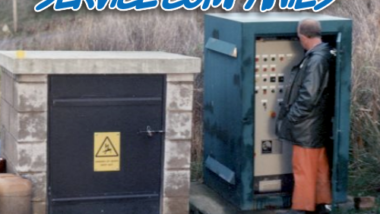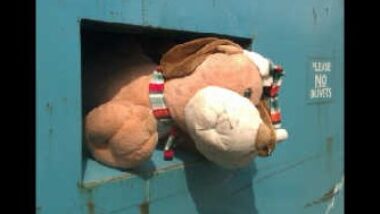THE Scrap Metal Dealers Bill (UK) has been in-force since about October 2013.
The new law means that dealing in cash for scrap metal, operating without a license or breaching the license conditions could now result in heavy penalties.
Magistrates are now able to impose unlimited fines on offenders.
The bill means that anyone selling scrap metal to a dealer must provide identification, which will then be recorded. Police will also be able to close unlicensed premises through the courts. A single national publicly-available register of all scrap metal dealers will also be established.
Motor salvage operators will also be brought under the banner of scrap metal. Commenting on the news, BMRA director general, Ian Hetherington, said: “The implementation of the new Act in October will eradicate some of the issues brought about by the introduction of the LASPO Act late last year and will help to close down traders who operate on the wrong side of the law.”
The original article which follows, about Scrap Metal Dealer Waste Management Licensing Requirements is a guest article which is unverified, and thus may be out of date or just plain wrong. Please treat this article as entertainment, or you the reader must take full responsibility for checking this.
On May first 1994 a new waste control licensing act became law which needed any operator who deposited, recovered or dumped waste needed a waste control licence or exemption. If you operated without either of these then you might be fined and sent to jail. A WML can be asked for and issued by the pertinent regulatory authority typically SEPA or the EA.
When getting a licence, you are required to be a ‘fit and proper person’ along with being technically competent to accomplish the job. A ‘fit and proper person’ is somebody without any environmental convictions, are technically competent and have taken all reasonable cares to meet their licence wants. Metal recyclers don’t face the full burden of waste legislation following heavy lobbying of government during the last ten years. Over the last 2 years, and with the support of the metal recycling trade associations, the Environment Agency has been clamping down on unauthorized and non-exempt sites. Licences issued under the Act are referred to as’Metal Recycling Site Licences’. Licence conditions include security fencing, covered storage needs, road and storage surfacing and drainage, sign and notice boards and other conditions.
A key component of the licensing and control system is Duty of Care. This is the ‘Duty of Care’ and it is applicable to anyone that produces, imports, carries, keeps, treats or disposes of controlled waste from business or industry or acts as a waste broker in this respect.
This involves the waste producer transferring a document to the waste disposer containing all applicable details about the waste. But the practicalities of always getting this document and the undeniable fact that some providers might decide to go to merchants who didn’t enforce the guidelines rigorously inspired a change of heart on the part of the governing body in accord with the Environment Agency which enforces the guidelines.
A concession was struck whereby the Environment Agency wouldn’t totally enforce the Duty of Care so far as the non-ferrous metal recycling industry particularly is concerned.
The Duty of Care rules apply to materials whether or not they are heading for recycling or disposal and the Environment Agency has said the duty of care is the piece of legislation that links waste controls together linking waste with carriers. There’s now pliability in the way the rules are implemented for typically tiny tons of material.
The Agency has given steerage announcing that duty of care must be accepted as an idea that needs all reasonable cares to be taken so that waste, including metals, in the safekeeping of a business or carrier doesn’t escape and is carried in a safe container.
Following the accord with the UK Secondary Metals organisation earlier in the year, the Agency won’t usually do something particularly as its resources have been targeted on getting unsanctioned or unregistered metal recycling sites into the licensing and exemption system.
The concessions on the duty of care apply to transactions where the total amount of scrap metal being transferred doesn’t surpass 1,500 kilogrammes. The exchange may cover a variety of metals but the total weight of the transfer shouldn’t be larger than 1,500 kg.
This implies that if the transfer weight of metals that are waste surpasses the 1,500 kg limit, then the waste transfer note must contain all of the details as in the laws.
The Future of UK Food Waste Management – Simpler Collections and Tougher Regulation
The future of UK food waste management will be a big push toward higher recycling rates through simpler collection and far greater consistency across the nations, helping citizens understand how to be green and recycle more organic waste. As the UK continues to advance its environmental goals, recently announced government policies aimed at simplifying waste […]
The Ultimate Guide To Recycling Plasterboard: How To Dispose Of Plasterboard Waste Properly
Plasterboard is a popular building material used in homes and offices. It’s light, strong, and easy to work with. But when it turns into waste, we can’t just throw it away like old food wrappers. Rules say plasterboard must not mix with other trash because it can harm the environment. Luckily, clean plasterboard can go […]
Unfashionable Talk About Landfills
Get ready for unfashionable talk about landfills! Let’s talk rubbish—literally. You might not think about landfills much unless the smell drifts your way on a windy day or you’re tossing out the garbage. But these dumping grounds are more than just piles of junk; they’re a snapshot of our consumer habits and a challenge we need to tackle. Landfill […]
Street Sweeper Waste Management: A Comprehensive Guide
This is a story that ranges from cleaning streets to sustainability. Jump aboard as we uncover the fate of street sweeper waste. In the bustling streets of cities worldwide, street sweepers play a pivotal role in maintaining cleanliness and public health. However, the journey of the waste they collect is often overlooked. This article dives […]










